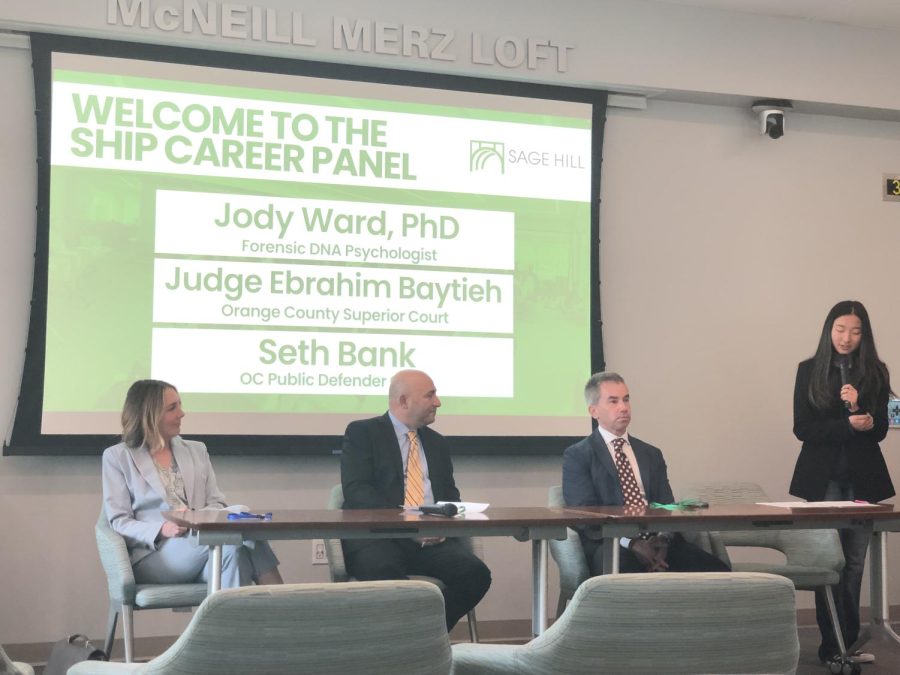Criminal Justice Panel Inspires Students
Junior Carisa Koh (right) moderates the SHIP career panel with forensic psychologist Jody Ward, Superior Court Judge Ebrahim Baytieh and Assistant Public Defender Seth Bank.
April 18, 2023
The Sage Hill Internship Program (SHIP) hosted criminal justice professionals for its third and final career panel of the 2022-2023 school year on March 16.
Jody Ward, a forensic psychologist; Orange County Superior Court Judge Ebrahim Baytieh; and Orange County Assistant Public Defender Seth Bank shared their experiences working in the legal field. They discussed the many ethical dilemmas they face in their jobs and how they fit into the criminal justice system, and they shared some advice for Sage Hill students.
All three panelists stressed the importance of trusting the U.S. legal system to handle all trials fairly. Early in his criminal defense career, Bank often grappled with his own guilt when his client was convicted.
“[It feels] like it’s my fault because I didn’t defend my client well enough.”
But he also remembers that he did everything that he could and has to trust that the judge is making a fair, impartial decision. And on the other side of that process is a judge who also has to trust the rules of the legal process. Baytieh, a former prosecutor with the Orange County District Attorney’s Office, said that when deciding on a case, even if he feels personally biased toward one ruling, he has to decide in favor of the evidence presented to him.
The panelists also agreed on the importance of separating their personal feelings from their work when dealing with difficult situations and cases. This applies when defending someone accused of a violent crime.
“A lot of times there are circumstances that explain why a person made a bad choice,” Bank said.
Even if he personally thinks his client is guilty and should be punished, he has to do his job and defend him or her to the best of his ability. He has to treat his client fairly and try to understand his or her perspective before jumping to judgment. The notion of separating personal feelings from the job also comes up when dealing with distressing cases.
Ward said that a lot of times when she interviews someone in a troubling situation, she has to step back and take a break before returning to her work to avoid burnout. Over the course of her career, Ward has learned that sometimes she has to put her own mental and emotional health first, and she even stopped working on child abuse cases because it was too painful to hear so many awful stories.
When asked about advice for Sage Hill students, Baytieh said to “make the most of the great opportunities you have and aim high so that you can give back”. He encouraged students to take advantage of these privileges and use them to achieve great things, but also remember to help those who have not been so fortunate.


